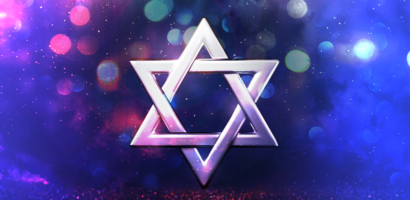Every language has its own slang terms. It’s interesting to learn a language’s slang, and by extension, the culture and people behind the language, because it gives insight into said people and their unique ways of seeing the world. Of course, we’re not here to psychoanalyze the Israeli collective consciousness through their slang. But we will be examining it playfully to give you — hopefully — some insights. Or, at least, food for thought. Hebrew is a fascinating language, after all.
Hebrew slang: what’s “hip in Hebrew-land” at the moment
Hazaya הזיה
Literal meaning, “Hallucination”. Like, as in you picked mushrooms in the woods and, because you’re no mycologist, are now seeing pink elephants flying around the room. But in Hebrew slang is used to describe something weird, in a situation or a person. Like, “The vibe at my awkward family reunion was so strange, dude, I was hallucinating.”

Sachi סחי (“ch” stands for the “chah” sound, and does so with all the following words it appears in)
This is used derisively to refer to someone as a “nerd”, who doesn’t drink alcohol. Like, “Don’t invite Ilan to the party. He’s such a sachi, he’ll be a dampener on the atmosphere.” Our best guess? It originated in Tel Aviv, the 24/7 party city in Israel, where not partaking in drinking would be considered “nerdy” behavior. We personally don’t think you’re nerdy if you don’t drink though. Each to his or her own.

Baduk בדוק
“Examined”. I.e., “I was examined by the doctor and everything is fine. At least I have my health.” However, in Hebrew slang, it means, “for sure”. We’re not “for sure” aware of the connection between these two terms. But perhaps it is: “Hey, are you coming to the gala?” “Examined. So, I’ll see you there.” Here, examined would mean, I checked it out and want to be included. Just a theory, though.
Mafchid מפחיד
This is a goody. Mafchid means “terrifying”. As in, “that giant grizzly bear is terrifying.” Of course, the word in slang is more of an interesting exaggeration. You’d find something awesome “terrifying”. As in, your friend’s new band and how well they performed at a popular hangout last night. “The way he played that guitar was terrifying!” I.e., so amazing as to astound you and, perhaps, make you feel it was supernaturally good.

Pitsuchim פיצוחים
Pitsuchim literally means “cracking”, like the cracking sound you hear when you are cracking nuts against your teeth. So, its slang term is hugely appropriate in that it means the sorts of light refreshments you’d offer guests who come around the house to watch sports or shows on TV. Like tree nuts, and so on. For instance, it would be used in this context by an Israeli, “Come over on Friday when we go up against Brazil in the World Cup! We can have some pitsuchim like Brazilian nuts because we might as well get something out of the game.” Sad to say, but the outcome of such a match is basically pre-ordained. You’d be a nutter to think otherwise!
Subscribe to our newsletter
Learn Hebrew slang, take a virtual tour across Israel, discover the best local food and so much more
Achi אחי
“My brother”. This one’s easy for an English audience to get. It’s slang purposely used for people who aren’t literally blood relations. Kind of like using “pal” or “buddy” for people you’re not really friends with. You wouldn’t use this term with your actual brother. It’s more of a camaraderie thing you’d use to form a connection of friendliness with someone you don’t necessarily know that well. Such as if you were at a street market, looking through clothing wares like jackets, the merchant may say something like, “Achi! I think this item would be perfect for you, try it on. You look good! You should buy it! For you, only 20 Shekels!”

Achoti אחותי
The same, except this is “my sister”. Used in the same context, and, no, you wouldn’t say it to your actual sister.
Stay tuned!
We’ll have further slang terms (and even idioms, those expressions that reveal much about a people through language to describe circumstances, people, and events through use not directly connected to the phrase itself) in the next few months.
In the meantime, if you’re interested in learning Modern Hebrew to fully engage with Israeli culture, we suggest studying one of our courses at The Rosen School of Hebrew. It’s a fun, immersive way to experience the language while becoming adept at it. It’s for all people with a connection to Israel or who plan to move there or work there. And through live, online classes taught by dedicated, native-speaking Hebrew teachers, it’s the most efficient way to learn the language.











